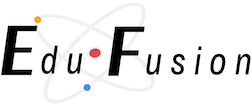The value of critical thinking skills is undeniable, particularly in today’s world in which there is a dearth of sound thinking amidst a backdrop of widespread misinformation designed to unduly persuade the public. Therefore, it comes as no surprise that it has been established as a key competency, serving as an overarching student learning goal and holding a place in core curricula for first-year students at many universities. Given the increasing deemphasis on the importance of factual information and the difficulty of students to differentiate between information and misinformation they consume through channels such as media outlets and social media sites, students need to learn how to think critically now more than ever (Schmaltz, Jansen, & Wenckowski, 2017). To that end, students across all disciplines need to learn how to think like scientists now more than ever.
In teaching an introductory course on Critical Thinking for over ten years now, I’ve seen a number of content revisions that continually drive me to consider which critical thinking concepts are best suited to first-year students. Which concepts can serve as the best building blocks to support continued growth and development of critical thinking skills going forward? Which concepts are first-year students ready to tackle? How can those concepts most effectively be taught?
One such concept area is scientific thinking, or the ability to generate, test, and evaluate claims in ways that minimize our inherent propensities toward bias (e.g., Koerber et al., 2015). My observation is that there is room in the introductory course design for an increased emphasis on this important concept set. It is highly relevant to first-year students and an integral part of the necessary foundation upon which students must build to become critical thinkers and develop higher-order thinking skills. We need to teach students how to think like scientists as a fundamental skill to prepare them to be more effective at thinking critically and learn higher-level concepts of critical thinking. While it’s likely that scientific thinking is manifested through indirect application in most curricula in some way or another, I propose that teaching students what scientific thinking is and providing opportunities for practice is first in order. From an instructional design perspective, aspects of scientific thinking should be written into curricula to be explicitly taught; establishing tenets of scientific thinking as learning objectives comes to mind.
So how can we promote scientific thinking in the online classroom? As one method, Sagan (1995) suggests the presentation of topics framed within simple terms aimed at teaching students how to approach claims, recognize poor arguments, and identify underlying fallacies (as cited in Schmaltz, Jansen, & Wenckowski, 2017). Including common exercises used in teaching Critical Thinking (group discussions and collaborative argument evaluations) that are focused on facilitating scientific thinking can be effective in areas such as helping correct cognitive biases and combatting pseudoscience.
Paul and Elder (2008) suggest framing realistic questions as either those with one definitive answer (Established Systems) or requiring the consideration of competing points of view (Conflicting Systems) and identifying their underlying characteristics (p. 21). Using individualized, career-relevant questions in this approach for the purpose of class discussion, with or without learning teams, could prove beneficial in promoting scientific thinking.
Modeling scientific thinking is, perhaps, one of the most important pedagogical techniques to employ. In a study on facilitating students’ mastery of the scientific process to apply to psychological questions, Pinnow (2016) presented three questions in a class discussion exercise in which instructor input was decreased incrementally. This form of modelling would transfer effectively to online classroom group discussions and could be used to help students see what scientific thinking actually looks like.
For first-year students, scientific thinking deserves a more prominent place on the stage of Critical Thinking education. Schmaltz, Jansen and Wenckowski (2017) advise that some student familiarity with scientific thinking fundamentals creates opportunities for faculty in various subject areas to help students grow these skills. Without question, designing more emphasis on scientific thinking into introductory courses on Critical Thinking contributes to the long-term outcomes educators seek for their students, outcomes that span far beyond proficiency at using problem-solving models or employing Socratic questioning. “By promoting scientific thinking, educators can ensure that students are at least exposed to the basic tenets of what makes a good argument, how to create their own arguments, recognize their own biases and those of others, and how to think like a scientist” (p. 3).
What are your thoughts? Do you teach Critical Thinking and what are your observations on scientific thinking as it is written into your curriculum? How do you promote scientific thinking in your classroom? You can email me at my email link below!
References
Koerber, S., Mayer, D., Osterhaus, C., Schwippert, K., and Sodian, B. (2015). The development of scientific thinking in elementary school: a comprehensive inventory. Child Dev. 86, 327–336. doi: 10.1111/cdev.12298
Paul, R. & Elder, L. (2008). The thinker’s guide to scientific thinking. Retrieved from https://www.criticalthinking.org/store/get_file.php?inventories_id=170&inventories_files_id=382.
Pinnow, E. (2016). Decoding the Disciplines: An Approach to Scientific Thinking. Psychology Learning & Teaching, 15(1), 94–101. https://doi.org/10.1177/1475725716637484
Schmaltz, R. M., Jansen, E., & Wenckowski, N. (2017). Redefining critical thinking: Teaching students to think like scientists. Frontiers in Psychology, 8, 459. doi:10.3389/fpsyg.2017.00459

